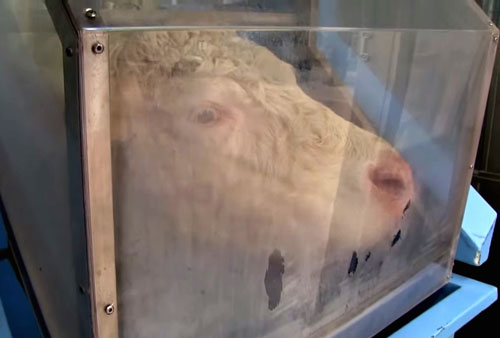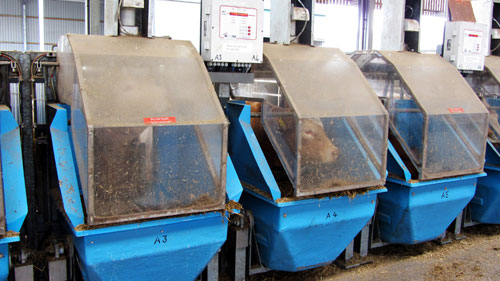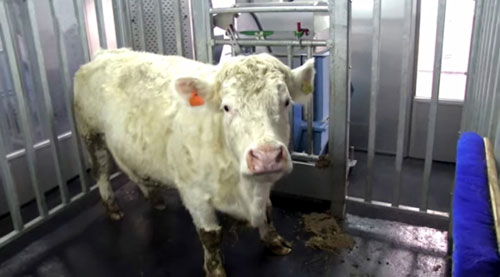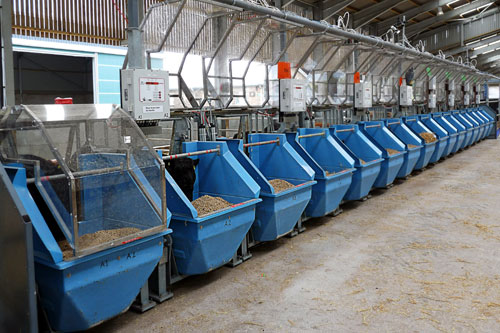RAPESEED oil could help save the planet by cutting cow flatulence, according to Scottish researchers.
A team based in Edinburgh has spent the past six years working out how to reduce the 70-120kg of methane produced annually from both ends of the planet’s 1.4bn cows.
They have been feeding the animals an experimental diet featuring rapeseed oil and the bottom line is that “harmful emissions” could be reduced by as much as 25%.

That would mean a cut in greenhouse gases in the region of 42bn kgs – roughly the equivalent of 1,000 Titanics a year.
The group at Scotland’s Rural College has also looked at breeding out the most flatulent animals.
Research has confirmed the assumption that fatter bulls produce more wind and further reductions in methane emissions could be achieved by breeding from skinnier animals.

Professor Richard Dewhurst is leading the £2.5m Green Cow project, which involves putting cows inside specially-designed chambers, complete with food, which precisely measure the amount of gas produced.
Specially-designed “Hoko feeders” have integrated canopies with ‘sniffers’ to enable gas sampling from cattle whilst they feed.
There are even training respiration chambers, where cows can get used to the surrounding sights, sounds and smells before entering the real thing.
Prof Dewhurst said: “Oil is the main supplement that we are looking at to reduce methane emissions.

“The micro-organisms which live in a cow’s stomach and produce methane don’t like oil, so when we introduce it to their diet we have found that less methane is produced.
“Cows already have some natural oil in their diet, so it’s all about trying to find the balance which means they will still be healthy but will produce less methane.”
It appears that for every 1% of oil in the animal’s diet, wind is reduced by 3.5%. Cows can tolerate up to 7% oil in their feed, research suggests.

Prof Dewhurst said the fibrous nature of grass was one of key causes of bovine flatulence.
Different grass types around the world mean that cows in South America tend to be windier than their New Zealand counterparts
Professor Dewhurst added: “We have found that a more fibrous, grassy diet produces more methane, as opposed to a diet higher in starch or sugar which produces less.

“There is some suggestion that methane production also might be linked to the size of the cows gut – the bigger the gut the more the cow can eat, the food stays in the stomach for longer and therefore more methane is created.
“With the demand for meat predicted to rise at least 1% per year it is vital that we work out the best way to reduce the methane emissions without affecting the productivity of the cow.”
